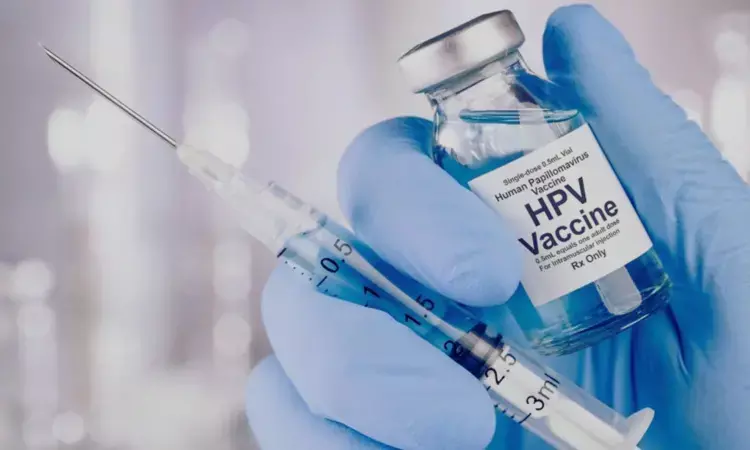- Home
- Medical news & Guidelines
- Anesthesiology
- Cardiology and CTVS
- Critical Care
- Dentistry
- Dermatology
- Diabetes and Endocrinology
- ENT
- Gastroenterology
- Medicine
- Nephrology
- Neurology
- Obstretics-Gynaecology
- Oncology
- Ophthalmology
- Orthopaedics
- Pediatrics-Neonatology
- Psychiatry
- Pulmonology
- Radiology
- Surgery
- Urology
- Laboratory Medicine
- Diet
- Nursing
- Paramedical
- Physiotherapy
- Health news
- Fact Check
- Bone Health Fact Check
- Brain Health Fact Check
- Cancer Related Fact Check
- Child Care Fact Check
- Dental and oral health fact check
- Diabetes and metabolic health fact check
- Diet and Nutrition Fact Check
- Eye and ENT Care Fact Check
- Fitness fact check
- Gut health fact check
- Heart health fact check
- Kidney health fact check
- Medical education fact check
- Men's health fact check
- Respiratory fact check
- Skin and hair care fact check
- Vaccine and Immunization fact check
- Women's health fact check
- AYUSH
- State News
- Andaman and Nicobar Islands
- Andhra Pradesh
- Arunachal Pradesh
- Assam
- Bihar
- Chandigarh
- Chattisgarh
- Dadra and Nagar Haveli
- Daman and Diu
- Delhi
- Goa
- Gujarat
- Haryana
- Himachal Pradesh
- Jammu & Kashmir
- Jharkhand
- Karnataka
- Kerala
- Ladakh
- Lakshadweep
- Madhya Pradesh
- Maharashtra
- Manipur
- Meghalaya
- Mizoram
- Nagaland
- Odisha
- Puducherry
- Punjab
- Rajasthan
- Sikkim
- Tamil Nadu
- Telangana
- Tripura
- Uttar Pradesh
- Uttrakhand
- West Bengal
- Medical Education
- Industry
Integrating HPV Vaccination into Postpartum Care Could Boost Cancer Prevention Efforts, Review Shows

USA: Integrating human papillomavirus (HPV) vaccination into routine postpartum care offers a valuable opportunity to reach at-risk patient populations, lowers costs for patients, and helps prevent HPV-related cancers, a recent study has revealed. The findings were published online in Obstetrics & Gynecology.
Human Papillomavirus is a significant public health concern linked to various cancers, including cervical, anal, and oropharyngeal cancers. While vaccination is recommended for adolescents, many women miss this opportunity during their reproductive years, particularly in the postpartum period. By integrating HPV vaccination into routine postpartum care, healthcare providers can effectively reach women who may not have received the vaccine earlier.
Against the above background, Sara E. Brenner, Department of Gynecology and Obstetrics, Emory University, Atlanta, GA, and colleagues aimed to evaluate the acceptability and feasibility of routine postpartum human papillomavirus vaccination and identify key themes and strategies to enhance vaccination rates among new mothers.
For this purpose, the researchers queried PubMed and ClinicalTrials.gov from inception to July 2024, focusing on postpartum HPV vaccination studies involving human subjects and published in English. They screened 60 studies evaluating HPV vaccination in the postpartum period, including only original research that reported on vaccine uptake or acceptability. After reviewing the abstracts, 39 studies were excluded for not meeting the criteria.
The remaining nine studies were categorized based on their primary objectives, which included defining the problem, assessing patient perspectives, and testing interventions aimed at increasing vaccination rates. These studies showed that postpartum HPV vaccination programs can significantly improve vaccination rates and are feasible and acceptable to patients.
"Integrating innovative strategies like routine postpartum human papillomavirus vaccination would help reduce missed opportunities for cancer prevention," the researchers wrote.
The systematic review emphasizes the importance of incorporating HPV vaccination into standard postpartum care. This strategy targets a population that may be at higher risk and offers a cost-effective solution to enhance vaccination rates.
"By leveraging the postpartum healthcare visit as an opportunity for vaccination, healthcare providers can play a pivotal role in preventing HPV-related cancers and improving long-term health outcomes for women. Healthcare systems, therefore, need to prioritize this integration to maximize the benefits of HPV vaccination in postpartum care," the researchers concluded.
Reference:
Brenner, Sara E. MD, MPH; Modesitt, Susan MD; Bednarczyk, Robert A. PhD; Dilley, Sarah E. MD, MPH. Human Papillomavirus Vaccination in the Postpartum Period: A Systematic Review. Obstetrics & Gynecology ():10.1097/AOG.0000000000005718, August 29, 2024. | DOI: 10.1097/AOG.0000000000005718
Dr Kamal Kant Kohli-MBBS, DTCD- a chest specialist with more than 30 years of practice and a flair for writing clinical articles, Dr Kamal Kant Kohli joined Medical Dialogues as a Chief Editor of Medical News. Besides writing articles, as an editor, he proofreads and verifies all the medical content published on Medical Dialogues including those coming from journals, studies,medical conferences,guidelines etc. Email: drkohli@medicaldialogues.in. Contact no. 011-43720751


